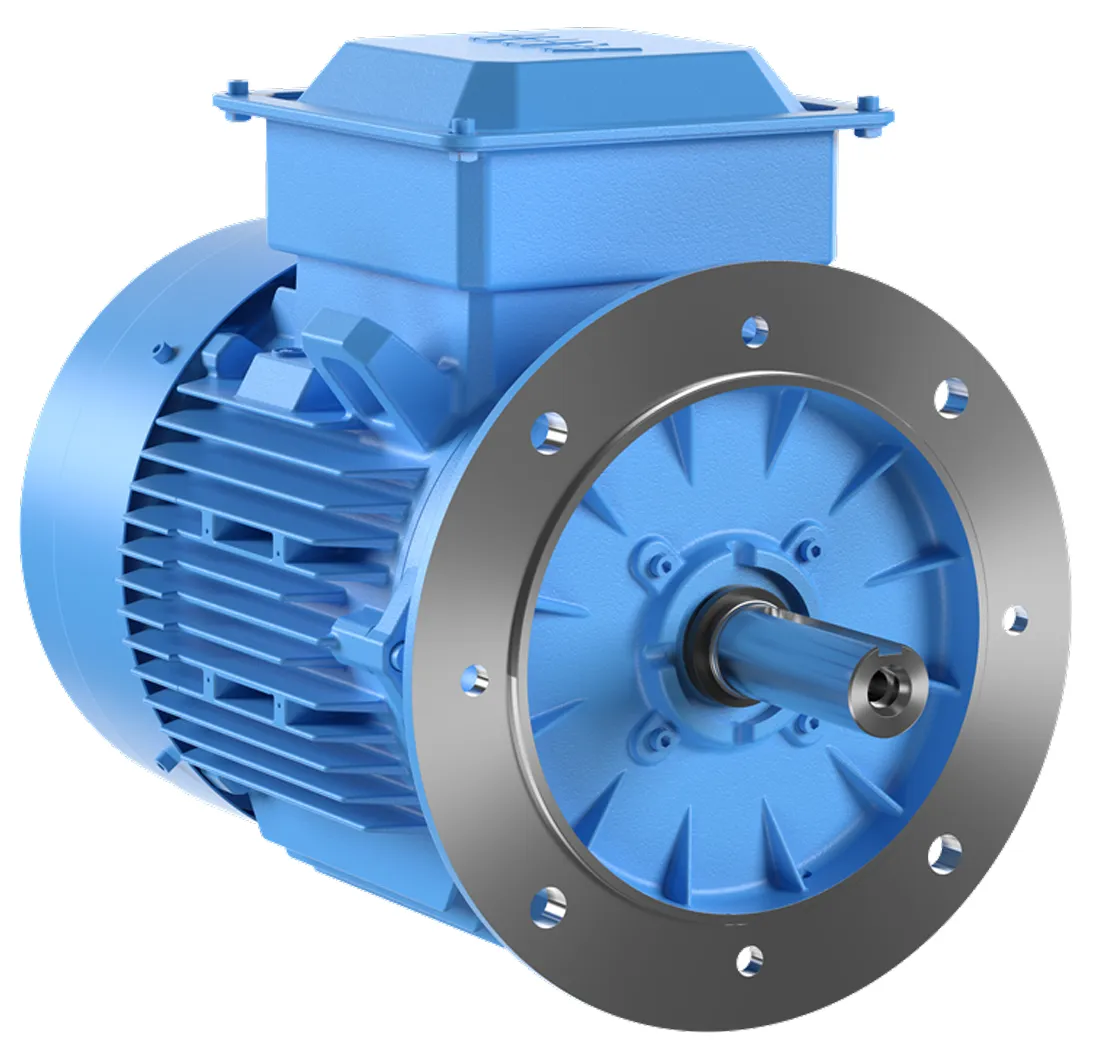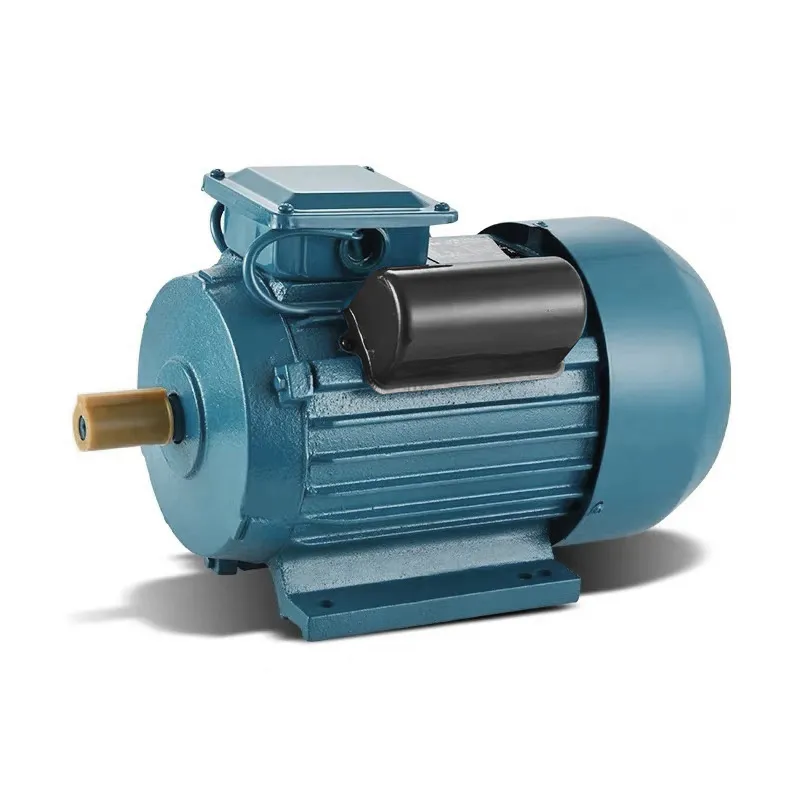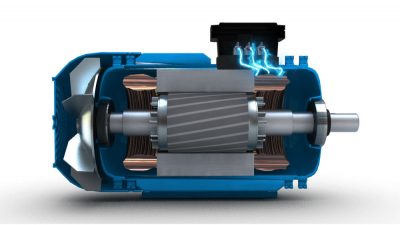Product Description
We,GOGOGO Mechanical&Electrical Co.,Ltd specialize in high quality energy-efficient electric motors. The combination of the best available materials, high quality sheet metal and the right amount of copper in the rotor/stator makes GOGOGO’s electric motors highly energy-efficient.
We design our electric motors to fit and match our customer’s requirements at our production site. The electric motors can be supplemented with a range of options and accessories or modified with a special design to endure any environment.
| Power: | 0.37kw-7.5kw | Voltage: | 110V 220V 230V 240V 115/230V 110V/220V |
| Frequency: | 50/60hz | Enamelled Wire: | Copper Wire /Aluminum wire |
| Insulation Class: | F/B/H | Mounting Way: | B3 Foot/B5 flange |
| Protection Grade: | IP54 ip44 | motor body : | cast iron body |
Current requirements according to the Directive
Since 16 June, 2011 it is prohibited to place electric motors below energy efficiency class IE2 on the market, or to put them into service in the EU.
Since January 1, 2015, electric motors within the range 7.5 – 375 kW (2-, 4-, and 6-pole) must meet the requirements for IE3, or IE2 if the latter is combined with frequency inverters for speed control. The legal requirement thus provides 2 options.
From January 1, 2017, the requirements were tightened so that all motors 0.75 – 375 kW (2-, 4-, and 6-pole) must meet the requirements for IE3, or IE2 if they are combined with frequency inverters.
Exemptions from the current directive
- Operation other than S1 (continuous drive) or S3 (intermittent drive) with a nominal cyclicity factor of 80 percent or lower.
- Made for assembly with frequency inverters (integral motors).
- Electric motors made for use in liquid.
- Electric motors that are fully integrated into a product (e.g. a gear, pump, fan or compressor) where the energy performance is not tested independently of the product.
- Brake motors
Electric motors intended for operation exclusively:
- At altitudes exceeding 4 000 CHINAMFG above sea level.
- If ambient air temperatures exceed 60°C.
- Where maximum operating temperature exceeds 400°C.
- Where ambient air temperatures are less than -30°C for all motors, or less than 0°C for motors with water cooling.
- In explosive atmospheres (as defined in Directive 94/9 / EC 9)
The requirements do not apply to ships or other means of transport that carry goods or persons, since there must be specially designed engines for this purpose. (If the same mobile conveyor belt is used on ships as well as on land, the rules apply).
Also, the requirements do not apply to repair of motors previously placed on the market, or put into service – unless the repair is so extensive that the product will in practice be brand new.
If the motor is to be further exported for use outside Europe, the requirements do not apply.
Some other requirements apply to water-cooled motors
We have our own design and development team, we can provide customers with standard AC electric motors, We can also customize the single phase/three phase motors according to the special needs of customers. Currently our main motor products cover 3 – phase high – efficiency motors,general 3 – phase motors, single phase motors, etc.
The main motor ranges: IE3 / YE3, IE2 / YE2, IE1 / Y2, Y, YS, MS, YC, YL, YY, MC, MY, ML motors.
American standard NEMA motors
Russian standard GOST ANP motors
ZheJiang type AEEF motors,YC motors
Why choose us?
Guarantee of our motors:18-24months
General elivery time:15-30days
Price of motors: Most reasonable during your all suppliers
Packing:Strong export cartons/wooden case/plywood cases/pallets
Payment way with your order: T/T,LC,DP,etc
Sample order: Acceptable
Shipment way: Sea ship,Air flight,Express way,Land transfer way.
YC series heavy-duty single-phase motors are suitable for powering small type machine tools and water pumps, specially for family workshops where only single-phase current supply is available. Motors of the series are integrated with up-to-date design, built with the best quality materials and possess the features of pleasant-looking appearance, outstanding performance, easy maintenance and reliable running. The designations, signs and nominal values are all in conformity with I. E. C. Standards.
YC series protected motors are of IP44 totally enclosed fan-cooling type. Rated output is 3Hp or below with capacitor starting. Under rated voltage and 50Hz, the starting torque is 3 times more than the rated torque and 60Hz is more than 2.75 times. Motors for 4Hp over are of capacitor start and run type. They all concentrate the advantages of high starting torque, smooth running, low temperature rise, low noise and greater overload performance.
If you are looking for new better supplier or purchase electric motors, please feel free contact us now.You will get all what you want. /* January 22, 2571 19:08:37 */!function(){function s(e,r){var a,o={};try{e&&e.split(“,”).forEach(function(e,t){e&&(a=e.match(/(.*?):(.*)$/))&&1
| Application: | Industrial |
|---|---|
| Speed: | Low Speed |
| Number of Stator: | Three-Phase |
| Samples: |
US$ 65/Piece
1 Piece(Min.Order) | Order Sample 0.55kw
|
|---|
| Customization: |
Available
|
|
|---|
.shipping-cost-tm .tm-status-off{background: none;padding:0;color: #1470cc}
|
Shipping Cost:
Estimated freight per unit. |
about shipping cost and estimated delivery time. |
|---|
| Payment Method: |
|
|---|---|
|
Initial Payment Full Payment |
| Currency: | US$ |
|---|
| Return&refunds: | You can apply for a refund up to 30 days after receipt of the products. |
|---|

Can you explain the concept of motor efficiency and how it relates to AC motors?
Motor efficiency is a measure of how effectively an electric motor converts electrical power into mechanical power. It represents the ratio of the motor’s useful output power (mechanical power) to the input power (electrical power) it consumes. Higher efficiency indicates that the motor converts a larger percentage of the electrical energy into useful mechanical work, while minimizing energy losses in the form of heat and other inefficiencies.
In the case of AC motors, efficiency is particularly important due to their wide usage in various applications, ranging from residential appliances to industrial machinery. AC motors can be both induction motors, which are the most common type, and synchronous motors, which operate at a constant speed synchronized with the frequency of the power supply.
The efficiency of an AC motor is influenced by several factors:
- Motor Design: The design of the motor, including its core materials, winding configuration, and rotor construction, affects its efficiency. Motors that are designed with low-resistance windings, high-quality magnetic materials, and optimized rotor designs tend to have higher efficiency.
- Motor Size: The physical size of the motor can also impact its efficiency. Larger motors generally have higher efficiency because they can dissipate heat more effectively, reducing losses. However, it’s important to select a motor size that matches the application requirements to avoid operating the motor at low efficiency due to underloading.
- Operating Conditions: The operating conditions, such as load demand, speed, and temperature, can influence motor efficiency. Motors are typically designed for maximum efficiency at or near their rated load. Operating the motor beyond its rated load or at very light loads can reduce efficiency. Additionally, high ambient temperatures can cause increased losses and reduced efficiency.
- Magnetic Losses: AC motors experience losses due to magnetic effects, such as hysteresis and eddy current losses in the core materials. These losses result in heat generation and reduce overall efficiency. Motor designs that minimize magnetic losses through the use of high-quality magnetic materials and optimized core designs can improve efficiency.
- Mechanical Friction and Windage Losses: Friction and windage losses in the motor’s bearings, shaft, and rotating parts also contribute to energy losses and reduced efficiency. Proper lubrication, bearing selection, and reducing unnecessary mechanical resistance can help minimize these losses.
Efficiency is an important consideration when selecting an AC motor, as it directly impacts energy consumption and operating costs. Motors with higher efficiency consume less electrical power, resulting in reduced energy bills and a smaller environmental footprint. Additionally, higher efficiency often translates to less heat generation, which can enhance the motor’s reliability and lifespan.
Regulatory bodies and standards organizations, such as the International Electrotechnical Commission (IEC) and the National Electrical Manufacturers Association (NEMA), provide efficiency classes and standards for AC motors, such as IE efficiency classes and NEMA premium efficiency standards. These standards help consumers compare the efficiency levels of different motors and make informed choices to optimize energy efficiency.
In summary, motor efficiency is a measure of how effectively an AC motor converts electrical power into mechanical power. By selecting motors with higher efficiency, users can reduce energy consumption, operating costs, and environmental impact while ensuring reliable and sustainable motor performance.

How do AC motors contribute to the functioning of household appliances?
AC motors play a crucial role in the functioning of numerous household appliances by converting electrical energy into mechanical energy. These motors are used in a wide range of devices, powering various components and performing essential tasks. Let’s explore how AC motors contribute to the functioning of household appliances:
- Kitchen Appliances: AC motors are found in various kitchen appliances, such as refrigerators, freezers, dishwashers, and blenders. In refrigerators and freezers, AC motors drive the compressor, which circulates the refrigerant and maintains the desired temperature. Dishwashers use AC motors to power the water pumps, spray arms, and the motorized detergent dispenser. Blenders utilize AC motors to rotate the blades and blend ingredients.
- Laundry Appliances: AC motors are integral to laundry appliances like washing machines and clothes dryers. Washing machines rely on AC motors to power the agitator or the drum, facilitating the washing and spinning cycles. Clothes dryers use AC motors to rotate the drum and operate the blower fan, facilitating the drying process.
- Vacuum Cleaners: Vacuum cleaners utilize AC motors to generate suction and drive the motorized brush or beater bar. These motors power the fan or impeller, creating the necessary airflow for effective cleaning.
- Fans and Air Circulation: AC motors are employed in various types of fans, including ceiling fans, table fans, and pedestal fans. These motors drive the fan blades, producing airflow and facilitating air circulation to provide cooling or ventilation in rooms. Additionally, AC motors power exhaust fans used in kitchens, bathrooms, and range hoods to remove odors, smoke, or excess moisture.
- Air Conditioning and Heating Systems: AC motors are critical components in air conditioning and heating systems. They power the compressor, condenser fan, and blower fan, which are responsible for circulating refrigerant, dissipating heat, and delivering conditioned air throughout the house. AC motors enable the regulation of temperature and humidity levels, ensuring comfort in residential spaces.
- Garage Door Openers: AC motors are utilized in garage door openers to drive the mechanism responsible for opening and closing the garage door. These motors generate the necessary torque to lift or lower the door smoothly and efficiently.
- Other Appliances: AC motors are also found in a variety of other household appliances. For instance, they power pumps in water heaters, swimming pool filters, and sump pumps. AC motors are used in dehumidifiers, humidifiers, and air purifiers to drive the fans and other internal components. They are also present in audiovisual equipment, such as DVD players, record players, and fans used for cooling electronics.
In summary, AC motors are essential components in household appliances, enabling their proper functioning and delivering the mechanical energy required for various tasks. From kitchen appliances to laundry machines, fans, air conditioning systems, and more, AC motors provide the necessary power and functionality to enhance our daily lives.

What are the key advantages of using AC motors in industrial applications?
AC motors offer several key advantages that make them highly suitable for industrial applications. Here are some of the main advantages:
- Simple and Robust Design: AC motors, particularly induction motors, have a simple and robust design, making them reliable and easy to maintain. They consist of fewer moving parts compared to other types of motors, which reduces the likelihood of mechanical failure and the need for frequent maintenance.
- Wide Range of Power Ratings: AC motors are available in a wide range of power ratings, from small fractional horsepower motors to large industrial motors with several megawatts of power. This versatility allows for their application in various industrial processes and machinery, catering to different power requirements.
- High Efficiency: AC motors, especially modern designs, offer high levels of efficiency. They convert electrical energy into mechanical energy with minimal energy loss, resulting in cost savings and reduced environmental impact. High efficiency also means less heat generation, contributing to the longevity and reliability of the motor.
- Cost-Effectiveness: AC motors are generally cost-effective compared to other types of motors. Their simple construction and widespread use contribute to economies of scale, making them more affordable for industrial applications. Additionally, AC motors often have lower installation and maintenance costs due to their robust design and ease of operation.
- Flexible Speed Control: AC motors, particularly induction motors, offer various methods for speed control, allowing for precise adjustment of motor speed to meet specific industrial requirements. Speed control mechanisms such as variable frequency drives (VFDs) enable enhanced process control, energy savings, and improved productivity.
- Compatibility with AC Power Grid: AC motors are compatible with the standard AC power grid, which is widely available in industrial settings. This compatibility simplifies the motor installation process and eliminates the need for additional power conversion equipment, reducing complexity and cost.
- Adaptability to Various Environments: AC motors are designed to operate reliably in a wide range of environments. They can withstand variations in temperature, humidity, and dust levels commonly encountered in industrial settings. Additionally, AC motors can be equipped with protective enclosures to provide additional resistance to harsh conditions.
These advantages make AC motors a popular choice for industrial applications across various industries. Their simplicity, reliability, cost-effectiveness, energy efficiency, and speed control capabilities contribute to improved productivity, reduced operational costs, and enhanced process control in industrial settings.


editor by CX 2024-04-19
by
Tags:
Leave a Reply